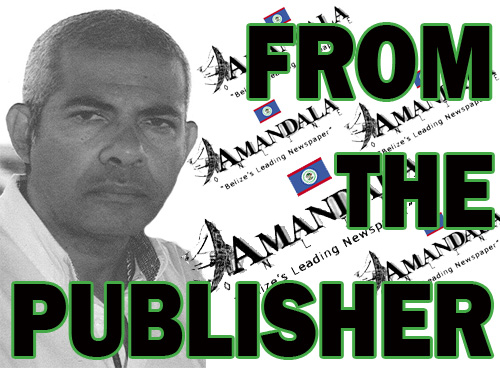What’s more important in life than family? Nothing, really. Family is where you come from, and family is what you will leave behind when you are gone. Family is where you are nurtured and comforted and loved. But, family is what revolutionaries sacrifice when they choose that road to trod.
Two of the greatest revolutionaries of our time – Ernesto “Che” Guevara of Argentina (and Cuba), and Nelson “Madiba” Mandela of South Africa, are clear cases of men sacrificing their families for their beliefs. Their children paid the price for Guevara’s and Mandela’s exploits, and, of course, their children’s mothers suffered with their children.
The 1960s (Che and Madiba burst on the international scene in the Sixties) are just a half century gone, but already historians worldwide have declared the decade a sensational one in our lifetime. Looking back, the Sixties began just fifteen years after the carnage of World War II, which ended with the Russians swarming vengefully into a prostrate Germany from the east and the Americans dropping atomic bombs on the defenceless Japanese in the Far East. After the defeat of Adolf Hitler and German Nazism, it is safe to say that the world looked forward to a time of peace. After the storm, a calm, we say. That calm didn’t last that long.
In the immediate aftermath of World War II, whose victors were the Russians, the Americans, and the British, a coldness began between the communist Russians, on the one hand, and the capitalist Americans and British, on the other. The question was: who would now rule the world? The British had been badly battered, and the Americans had emerged as the powerhouse of the NATO West. (NOTE: NATO is the acronym for a military alliance called the North Atlantic Treaty Organization.) So it was, an international “eyeballing” began between the Americans and the Russians. This competition, an actual conflict in surrogate states and territories, became known as the “Cold War.”
The fall of China to Mao Tse-tung’s communists in 1949 strengthened international communism and soon led to the Korean War in the early 1950s. The United States ended up in armed conflict with China, while Russia supported the Chinese from behind the scenes.
In 1954, the NATO West suffered a blow when the French were defeated by the communist Vietnamese at the famous battle of Dien Bien Phu. On this side of the planet, the Americans became angry when Fidel Castro’s revolution triumphed in Cuba on New Year’s Day of 1959, and soon declared itself a communist revolution.
Victories for Washington and their NATO allies included the overthrow of Jacobo Arbenz, a democratically elected President of Guatemala, in 1954, following their ouster by coup of Mohammad Mossadegh, the democratically elected Prime Minister of Iran, the previous year. Washington and the NATO West also welcomed the murder of Patrice Lumumba in the Congo in early 1961, because a desperate Lumumba had begun making overtures to the Russians and the Chinese.
Just three months after the Americans encouraged the murder of Lumumba, Cuban exiles, armed and financed by the Americans, and trained by the CIA in Guatemala and Nicaragua, invaded Castro’s Cuba. They were defeated at the Bay of Pigs.
And then, in October of 1962, the two principals in the nuclear competition on planet earth – the United States and Russia, finally confronted each other face-to-face in the Cuban Missile Crisis. The fate of the world hung in the balance. In China, Mao Tse-tung actually wanted the Americans and the Russians to go all the way: he felt that China, because of its size of population, would be the one to survive a nuclear holocaust. Mao was unhappy when the Russians, and Castro, accepted a compromise with Washington. Che Guevara, apparently, agreed with Mao.
The repercussions of the Cuban Missile Crisis began to be felt even as the American black minority began serious agitation for their civil rights, most notably with their “March on Washington” in August of 1963, just three months before arguably the most incredible political assassination in history – that of American President, John Fitzgerald Kennedy, in Dallas, Texas. The American public was becoming aware of how dangerous the world had become, how awfully serious the Russian challenge was, and just how close the planet was to a nuclear war at any given time, night or day. Both Russia and America had thousands and thousands of thermonuclear missiles flying in bombers in the sky, cruising in submarines beneath the sea, and protected in underground silos in uninhabited areas of their vast countries. Everything was on cock, 24/7. This was the reality in the Sixties. Young people in America and Europe began to rebel. At first, the rebellion was an artistic and intellectual one. By the time of Paris and Tlatelolco and Kingston in 1968, the rebellions were violent.
In early 1965, at the age of 17, I was given a university scholarship by the State Department of the United States. Belize had become a self-governing colony in 1964 and appeared ready for independence. The Americans wanted to gain more influence in Belize. At 17 in isolated, insular Belize, all I was interested in was sports and young ladies, not necessarily in that order.
But when I landed in New York City in late August of 1965, this was a time when the Vietnam War was beginning to heat up big time. On the television evening news, they would show the body bags with young dead soldiers arriving at American airports. An inordinate number of those corpses were black. In Mississippi in early 1966, Stokely Carmichael made his historic call for “black power”: America and the world had entered my life. I was black. Belizeans my age were fighting and dying in Vietnam. In 1968, the Seventeen Proposals were the last straw. My life began to spin out of my control. I became a revolutionary.

